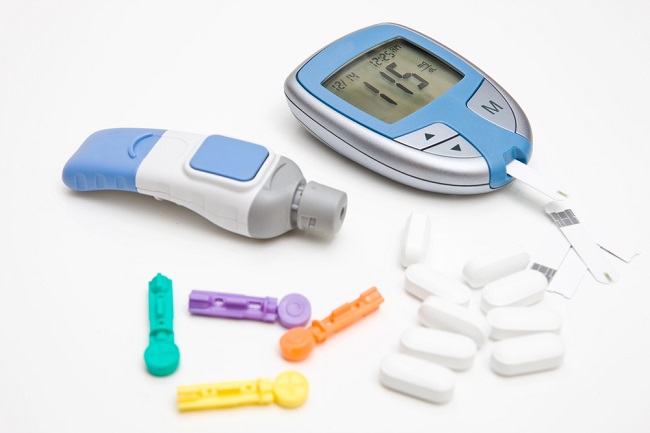Trimethoprim is antibiotics to treat diseases caused by bacterial infections, such as urinary tract infections and middle ear infections (otitis media).
Trimethoprim works by stopping the growth of bacteria that cause infection. To increase its effectiveness, trimethoprim is usually combined with sulfamethoxazole. This medicine cannot be used to treat infections caused by viruses, such as the flu.

Trimethoprim trademark:Bimactrim, Cotrimaxozole, Cotrim Forte, Decatrim, Etamoxul, Fasiprim, Gencotri, Infatrim, Licoprima, Meprotrin Forte, Moxalas, Omegtrim, Primavon, Pehatrim, Saltrim, Sanprima, Sisoprim, Sultrimmix, Tifatrim, Zecatrim
What is Trimethoprim
| group | Prescription drugs |
| Category | Antibiotics |
| Benefit | Treats urinary tract infections and otitis media |
| Consumed by | Adults and Children |
| Trimethoprim for pregnant and lactating women | Category C:Animal studies have shown adverse effects on the fetus, but there are no controlled studies in pregnant women. Drugs should only be used if the expected benefit outweighs the risk to the fetus. Trimethoprim may be absorbed into breast milk. If you are breastfeeding, do not use this medicine without consulting your doctor first. |
| Drug form | Caplets, tablets and suspensions |
Precautions Before Taking Trimethoprim
Trimethoprim should only be used as prescribed by a doctor. Here are some things you need to pay attention to before taking trimethoprim:
- Do not take trimethoprim if you are allergic to this drug. Tell your doctor about any allergies you have.
- Tell your doctor if you have or have had anemia, kidney disease, liver disease, folic acid deficiency, low platelet count (thrombocytopenia), deficiency glucose-6-phosphate dehydrogenase (G6PD), electrolyte disturbances, or diabetes.
- Avoid exposure to direct sunlight for a long time, while taking trimethoprim, because this drug can cause the skin to become more sensitive to sun exposure.
- Tell your doctor if you plan to have a live vaccine, such as the typhoid vaccine, while you are taking trimethoprim.
- Tell your doctor if you are pregnant, breastfeeding, or planning a pregnancy.
- Tell your doctor if you are taking certain medications, supplements, or herbal products.
- See your doctor right away if you have an allergic drug reaction, serious side effect, or overdose after taking trimethoprim.
Dosage and Instructions for Use of Trimethoprim
Dosage and rules for use of trimethoprim vary in each patient. The doctor will give the dose and determine the length of treatment according to the patient's condition and age. Here is the explanation:
Purpose: Treat urinary tract infections
- Mature: 100 or 200 mg, 2 times daily, for 3–14 days.
- Children ages 4 months to 12 years: 6 mg/kgBW per day which is divided into 2 consumption schedules.
Purpose: Treating acute otitis media
- Children aged 6 months: 10 mg/kgBB per day which is divided into 2 consumption schedules, for 10 days.
Purpose: Prevent recurrence of urinary tract infections
- Mature: 100 mg, once daily, at night.
- 4 month old kids until 12 years old: 2 mg/kg, once per day, at night.
How to Take Trimethoprim Correctly
Be sure to follow your doctor's advice and read the instructions on the medicine package before taking trimethoprim. Do not increase or decrease the dose, and do not use the drug more than the recommended time.
Take trimethoprim regularly at the same time each day. Trimethoprim tablets and capsules can be taken after meals. Swallow the medicine with the help of a glass of water.
For trimethoprim suspension, don't forget to shake the medicine before taking it. Use the measuring spoon provided in the package for a more accurate dose. Do not use your own measuring device, such as a tablespoon, because the dose may differ from the recommended one.
If you forget to take trimethoprim, it is advisable to take it immediately if the interval with the next consumption schedule is not too close. If it is close, ignore it and do not double the dose.
Keep taking the drug until the dose recommended by the doctor runs out, even though the symptoms have disappeared. Do not reduce your dose, increase your dose, or stop taking the drug without your doctor's advice.
If you have diabetes, check with your doctor to monitor blood sugar levels before and while taking trimethoprim.
Store trimethoprim at room temperature and in a closed container, so that it is not exposed to direct sunlight. Keep this medicine out of reach of children.
InteractionTrimethoprim with Other Drugs
There are several drug interaction effects that can occur when trimethoprim is used together with other medicines, namely:
- Increased levels of dapsone in the blood
- Increased risk of folic acid deficiency if taken with folic acid antagonists, pyrimethamine, or anticonvulsant drugs
- Increased risk of developing anemia due to bone marrow damage when used with methotrexate or azathioprine
- Decreased effectiveness of trimethoprim when used with rifampicin
- Increased risk of low platelet levels when used with diuretic drugs
- Increased risk of kidney damage if used with ciclosporin
- Increased risk of bleeding if used with warfarin
- Increased risk of hyperkalemia when used with angiotensin-converting enzyme (ACE) inhibitor, such as captopril
Side Effects and Dangers of Trimethoprim
Some of the side effects that can occur after using trimethoprim are:
- Throw up
- Diarrhea
- Stomach ache
- Swollen tongue
- Itching and rash
- No appetite
Check with your doctor if the side effects above don't go away or get worse. Immediately see a doctor if there is an allergic reaction to the drug that can be characterized by certain symptoms, such as the appearance of an itchy rash, swollen eyes and lips, or difficulty breathing.
In addition, you should also see a doctor immediately if you experience more serious side effects, such as:
- Severe headache
- black chapter
- pale skin
- Fever
- Sore throat
- Ulcer
- Bluish color of nails, lips or skin
- Easy bruising or unusual bleeding
- Yellowing of the skin and eyes (jaundice)
- Joint pain
- High potassium levels, which are characterized by an irregular heartbeat, chest pain, or muscle weakness









